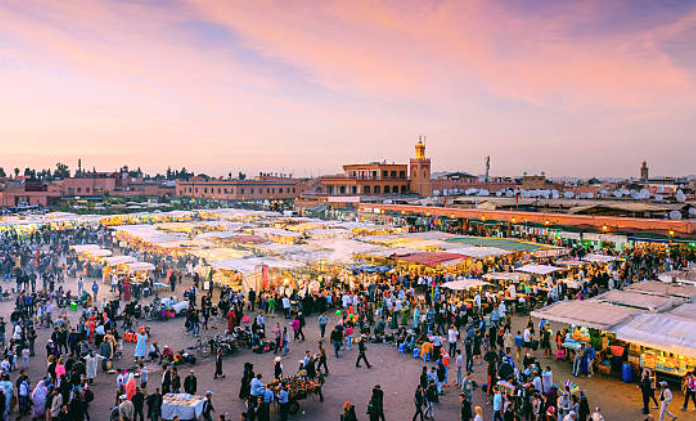Morocco is experiencing significant growth in infrastructure development, with a focus on modernizing its transportation, energy, and construction sectors. Roll forming technology has played a crucial role in this transformation, providing efficient and high-quality metal components for various projects. Here are some notable case studies that illustrate the successful applications of roll forming in Morocco's infrastructure initiatives.
1. High-Speed Rail Project (LGV)
- Project Overview: The Moroccan High-Speed Rail Project, connecting Tangier and Casablanca, is a landmark development aiming to enhance the country's transportation network.
- Roll Forming Application: Roll forming machines were employed to manufacture structural components such as rail fasteners and track systems. The precision of roll forming allowed for consistent quality and tight tolerances necessary for railway infrastructure.
- Impact on Project: The use of roll formed components significantly reduced lead times, enabling rapid assembly of the railway system. This efficiency helped keep the project on schedule, ensuring the timely delivery of services to the public.
2. Renewable Energy Projects (Noor Solar Complex)
- Project Overview: The Noor Solar Complex in Ouarzazate is one of the largest solar power plants in the world, contributing to Morocco's commitment to renewable energy.
- Roll Forming Application: Roll forming was utilized to produce the mounting structures for solar panels. These structures are designed to withstand high wind loads and extreme temperatures typical of the region.
- Impact on Project: The lightweight yet durable roll-formed structures facilitated quicker installation, allowing the project to meet its deadlines. Moreover, the consistency in production quality minimized waste and ensured reliability in the solar installations.
3. Urban Development Projects (Rabat Tramway)
- Project Overview: The Rabat-Salé tramway is a key component of urban transport aimed at reducing traffic congestion and improving public transportation in Morocco's capital.
- Roll Forming Application: Roll forming technology was employed to manufacture tram tracks and supporting infrastructure components. The process allowed for the creation of complex profiles that fit the specific engineering requirements of the tramway.
- Impact on Project: The efficiency of roll forming contributed to a faster construction timeline, helping the project stay within budget. The durability of the roll-formed components also ensured long-term performance with minimal maintenance.
4. Road Infrastructure Improvements (New Highway Projects)
- Project Overview: The Moroccan government has invested heavily in expanding and upgrading its highway system to improve connectivity and economic development.
- Roll Forming Application: Roll forming machines were used to create guardrails, road signs, and metal bridge components. The ability to produce custom profiles allowed for optimized solutions tailored to specific highway conditions.
- Impact on Project: The use of roll-formed elements accelerated project timelines by streamlining the manufacturing and installation processes. Additionally, the high quality of roll-formed components enhanced the overall safety and durability of the infrastructure.
5. Industrial and Commercial Building Projects (Marrakech Business Park)
- Project Overview: The Marrakech Business Park aims to attract foreign investment by providing modern facilities for various industries.
- Roll Forming Application: Roll forming was instrumental in producing steel framing, roofing panels, and exterior cladding for the commercial buildings within the park.
- Impact on Project: The speed of production and ease of installation of roll-formed components helped meet the tight deadlines set for the project. Furthermore, the use of high-quality materials ensured that the buildings would withstand the local climate, contributing to long-term sustainability.
Conclusion
The application of roll forming technology in Morocco's infrastructure projects has proven to be a game-changer, enhancing efficiency, quality, and speed of construction. From high-speed rail systems to renewable energy initiatives, roll forming continues to support the country's development goals, making it a vital tool in modern Moroccan engineering and construction. As Morocco continues to invest in its infrastructure, the role of roll forming is likely to expand, paving the way for innovative and sustainable building practices.




